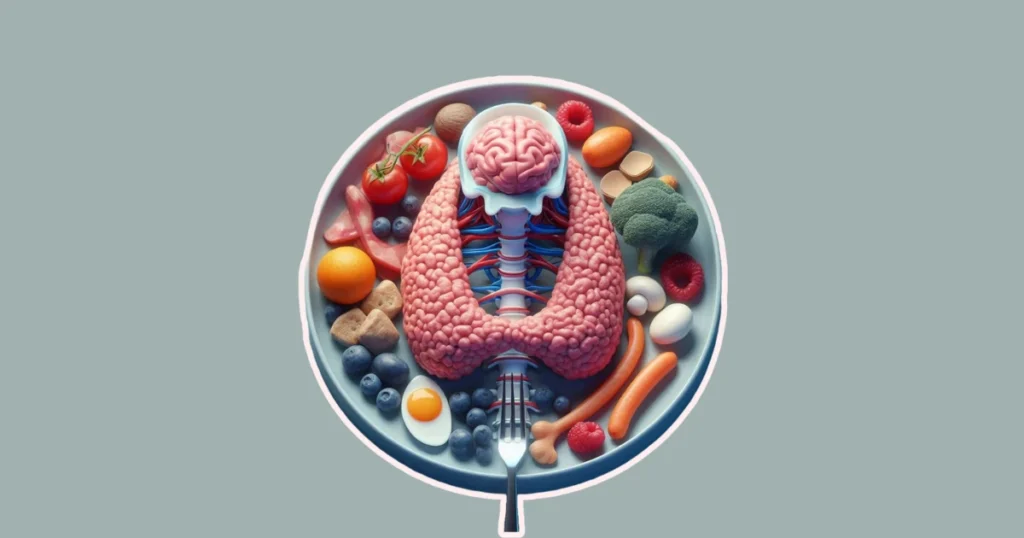
When considering thyroid health, the impact of food can be significant, serving as either a valuable ally or a detrimental foe. This small, butterfly-shaped gland located in your neck may be diminutive in size, yet it has a substantial influence on your metabolism, mood, energy levels, and various other functions.
If you are experiencing a thyroid condition, such as hypothyroidism or Hashimoto’s disease, you are likely aware of the complexities involved.
It is important to recognize that certain foods can exacerbate your symptoms, interfere with your medication, or disrupt your hormonal balance. However, there is no need for concern; our aim is to assist you in identifying which foods to avoid or limit and to explain their significance in the management of thyroid-related issues.
Foods to Avoid with Thyroid Issues
Soy Products: Healthy, But Not Always
Soy is highly regarded in the health community due to its plant-based nature and high protein content, commonly appearing in products ranging from tofu to smoothies. However, for individuals with thyroid concerns, soy may not be beneficial.
The presence of isoflavones in soy can disrupt the production of thyroid hormones, particularly in cases of low iodine levels. Additionally, for those taking thyroid medication, soy may hinder the absorption of the medication in the body.
Gluten: A Common Trigger for Autoimmune Thyroid
Many individuals diagnosed with thyroid conditions, especially Hashimoto’s thyroiditis, tend to have gluten sensitivity. In certain cases, gluten can lead to increased inflammation or trigger an immune response that adversely affects thyroid function.
Some people find that eliminating gluten results in significant improvements, while others may not see much of a difference. It is essential to pay attention to your body’s responses and to seek advice from your physician. If a history of thyroid and gastrointestinal issues is present in your family, testing for celiac disease may be considered.
Cruciferous Vegetables (Raw)
Broccoli, kale, and cauliflower are well-known for their high nutrient content. Nevertheless, when consumed raw, cruciferous vegetables possess goitrogens that can hinder the thyroid’s use of iodine, a crucial mineral for its optimal performance.
Should this lead you to avoid them altogether? Certainly not. Cooking these vegetables in a straightforward manner can greatly reduce their goitrogenic properties.
Processed and Sugary Foods
Managing hypothyroidism can result in a sluggish metabolism. The inclusion of processed foods—such as chips, fast food, and sugary snacks—can worsen this situation. These items can elevate blood sugar levels, increase inflammation, and lead to weight gain.
Additionally, the consequences go beyond just weight management. High-sugar diets can leave you feeling more fatigued and irritable, which are common struggles for those with thyroid conditions.
Dairy (for Sensitive Individuals)
Individuals suffering from thyroid disorders, especially those with Hashimoto’s thyroiditis, often face lactose intolerance or sensitivity to dairy products.
This condition can result in heightened inflammation and digestive issues, which may exacerbate symptoms related to thyroid dysfunction. Indicators that one may be sensitive to dairy typically consist of bloating, exhaustion, cognitive impairment, and diarrhea.
Common offenders include milk, cheese, yogurt, ice cream, and cream-based sauces, which might need to be eliminated from the diet.
If you believe that dairy could be impacting your thyroid health, it may be beneficial to remove it from your diet for several weeks to monitor any changes in your well-being. In such instances, lactose-free or plant-based alternatives such as almond milk, oat milk, or coconut milk may serve as more suitable options for your digestive system.
The bottom line
Managing thyroid health frequently requires a thoughtful evaluation of dietary selections. Although this small yet powerful gland significantly affects various bodily functions, certain foods can either enhance its optimal functioning or worsen pre-existing conditions.
As we have discussed, being attentive to your consumption of soy products, gluten, raw cruciferous vegetables, processed and sugary foods, and even dairy (for those who are sensitive) can greatly influence the alleviation of symptoms and the promotion of your overall well-being.
By recognizing the possible effects of these foods—from hindering hormone production and medication absorption to instigating inflammation and digestive problems—you can make educated choices that empower you in the effective management of your thyroid health.
Always keep in mind to heed your body’s distinct responses and seek advice from your healthcare provider for tailored dietary recommendations.


